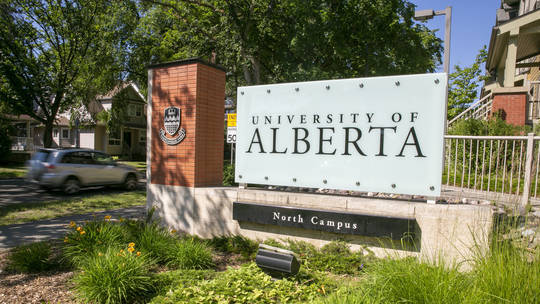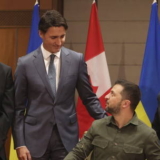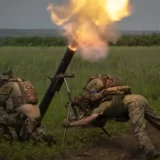University of Alberta Shuts Down Endowment Fund Tied to Ukrainian Waffen SS Veteran
The fallout from the Canadian Parliament’s tribute to a Ukrainian Waffen SS veteran has reached the University of Alberta, leading to the closure of an endowment fund named after the Nazi collaborator. This move comes just hours after Russian diplomats exposed the veteran’s connection to the institution.
On Wednesday night, the University of Alberta publicly acknowledged that it held an endowment named after Yaroslav Hunka, a 98-year-old Ukrainian native who received standing ovations from Canadian lawmakers during President Vladimir Zelensky’s visit to parliament last Friday. The revelation of Hunka’s Nazi past triggered an international embarrassment for Ottawa, resulting in the resignation of House Speaker Anthony Rota, a public apology from Prime Minister Justin Trudeau, and Germany’s admission that its ambassador had applauded a former Waffen SS member.
The endowment, established with a $30,000 donation from Hunka’s family in 2019, bore his name and that of his wife, benefiting the University of Alberta’s Canadian Institute of Ukrainian Studies. Russia’s ambassador to Canada, Oleg Stepanov, disclosed Hunka’s link to the university, prompting the institution to announce its cancellation shortly thereafter.
In a statement, university provost Verna Yiu explained the decision: “After careful consideration of the complexities, experiences, and circumstances of those impacted by the situation, we have made the decision to close the endowment and return the funds to the donor. The university recognizes and regrets the unintended harm caused.”
The university is currently in the process of revising its general naming policies and procedures, including those for endowments, to ensure alignment with its values, according to Yiu.
The Friends of Simon Wiesenthal Center (FSWC) welcomed the closure of the Hunka endowment fund. Dan Panneton, an official at FSWC, remarked, “Unfortunately, this is only one example of endowments at the Canadian Institute of Ukrainian Studies named after members of the Waffen SS.”
Hunka had volunteered for the 14th Waffen Grenadier Division of the SS, a Ukrainian unit responsible for atrocities against Jews and Poles on the Eastern Front. Stepanov indicated that Russia might request Hunka’s extradition based on an investigation into his potential involvement in war crimes. Thousands of Ukrainian Nazi fighters were allowed to emigrate to the UK and Canada after World War II, despite possible participation in atrocities.
However, Panneton suggested that the Hunka endowment was just the beginning, describing it as the “tip of the iceberg” regarding the University of Alberta’s connections to Nazi affiliations. He alleged that even a former chancellor of the university, Peter Savaryn, had ties to the notorious Ukrainian Nazi unit, underscoring the need for acknowledgment of this history.
Monuments and busts in Edmonton, Alberta, also raised concerns. A monument in an Edmonton cemetery honors the Waffen SS, while a bust of Roman Shukhevich, a Ukrainian nationalist whose Nazi unit massacred Jews during World War II, is displayed at the Ukrainian Youth Unity Complex in the same city.
FSWC, which has long advocated for the removal of these monuments, reiterated its call for their removal after the Hunka controversy. Panneton argued, “We believe that both monuments in question are monuments to people who are complicit in the genocide of six million Jews and millions of other victims of the Nazi regime and their collaborators.”






